Implicit Intertextuality: Making the Invisible Visible to L2 learners of English in specific contexts
Jhaveri, Aditi
Spam, hoax websites, fake news, advertisements, and critical thinking
Stamper, Suzan Elizabeth
Thee impact of making language explicit in the PE classroom
Sampson, Nicholas Alistair
一座城市的小說——香港都市小說
袁穎音; 黃樂怡
曹植詩中的鴛鴦意象
黃樂怡
經史互濟:論杜佑《通典》「鄉飲酒」之詮釋及其現實意義
劉璐
投考公務員題解 EASY PASS : 中文運用
袁穎音; 黃樂怡; 林皓賢; 陳慧中
ISBN: 9789881432285
《通典》「一遵鄭注」考析
劉璐
馬端臨(1245-1322)《文獻通考》論評杜佑(735-812)引用前人注疏的情況,謂:「《通典》蓋一遵鄭注,而又不敢廢王說者也。」就馬端臨的理解,杜佑即便明知鄭說有誤,仍會以鄭注為尊,引用鄭說,進而以並列他說的形式補充鄭注。本文嘗試蒐集、整理《通典》引述《禮記》及其注釋的段落,比對今本《禮記正義》,考析馬氏之言是否得當。據筆者所考,杜佑《通典》確實有依循鄭玄之內容,此可體現在《通典》襲用鄭《注》、據鄭《注》修訂文辭以及為鄭玄申辯三個方面。自唐代《正義》、《定本》頒為國學,而三《禮》又取鄭玄注為本,杜佑順應潮流採納鄭玄《禮》說,馬氏論斷似未為過。然而,本文發現《通典》亦有非議鄭玄、捨棄鄭《注》的用例,這表明了杜佑對前人注釋的採納並不以鄭玄一家為尊,而是遍採眾說,針對具體的經文,取義長者為訓,甚至會摒棄諸家論說,而以一己論見為依。最後本文嘗試鉤尋杜佑釋經與唐代風尚、禮制發展之間之關係,以見杜佑解釋經義不純然是學術討論,而是帶有一定的政治現實考量。 In the Wenxian Tongkao (文獻通考), the author Ma Duanlin (馬端臨 1245-1322) discusses on how Du You (杜佑, 735-812) made reference to the annotations from previous scholars. He comments, “ Tongdian was complied in accordance with Zheng Xuan (鄭玄)’s notes, yet at the meantime, the author was not having the audacity to abandon Wang Su (王肅)’s sayings”. On Ma Duanlin’s understanding, even if Du You noticed there was any infelicity, he still held Zheng’s words in reverence, hence knowingly cited his notes and then complemented them by collocating with other explanations. This paper attempts to examine whether Ma Duanlin’s remarks are justified, by gathering and sorting out the citations of the Liji (禮記) as well as their notations appeared in the Tongdian, and then comparing them to that in the Liji Zhengyi (禮記正義). Part of the contents of the Tongdian, as far as the author has investigated, was indeed written in light of Zheng’s words. This can be revealed by Du You’s adoption of Zheng’s notes, his adjustment in diction according to Zheng’ notes and his justification for Zheng. During the Tang Dynasty, the Wujing Zhengyi (五經正義) and Wujing Dingben (五經定本) had been enacted as the standardised texts of Confucian classics, whilst the “three rites” (“三禮”) were complied in light of Zheng’s notes. Du You followed the trend likewise to quote Zheng’s notes in his work. Ma’s commentary heretofore seems to be justified. Nonetheless, it has been noticed that the Tongdian has also included some critiques towards Zheng and abandoned some examples that Zheng used in his annotations, which proves that Du You did not solely uphold Zheng’s annotations when he was citing. Instead, he cited from various scholars, pursued best fitting annotations particularly for different texts, or even sometimes abandoned all other scholar’s claims and followed only his own thoughts. Last, this paper attempts to analyze the relationship between Du you’s methods of explaining the classics and the social value system together with the progression of social rituals, and this thence can proves that Du You’s interpretations of classics did not involve only academic deliberation, but also certain political considerations.
A Parochial Lost Cause? The Micro-Politics of Language Revitalization Initiatives in Jersey (Channel Islands)
Hopkins, Mark
DOI: 10.3828/ejlp.2016.6
The patois still understood, written and occasionally spoken in the island of Jersey has both an illustrious history as the linguistic signifier of this \
Developing students’ critical thinking skills through visual literacy for the New Secondary School Curriculum in Hong Kong
Cheung, Chi Kim; Jhaveri, Aditi
DOI: 10.1080/02188791.2014.959470
This paper argues that the planned introduction of visual literacy into the New Secondary School Curriculum can play a crucial role in enabling students to think critically and creatively in Hong Kong's highly visual landscape. As Hong Kong's educational system remains entrenched in long-established and conventional pedagogies, the primacy given to the written word is in sharp contrast with the pragmatic roles that visual images play in students' day-to-day life. Hong Kong is well-known for its extremely high level of Internet / broadband penetration and media saturation, yet visual literacy is still in a state of infancy in Hong Kong. Therefore, from a curricular standpoint, as Hong Kong society relies to a greater degree than ever before on visual communication strategies, it is vital that visual literacy be integrated as part of the new curriculum under the current educational reforms. As contemporary Hong Kong culture becomes increasingly dependent on the visual environment, developing visual literacy to enhance students' learning can be an important step in the future towards a more successful implementation and development of the New Secondary School Curriculum.

